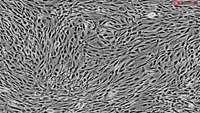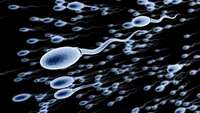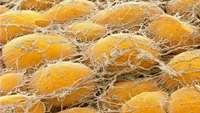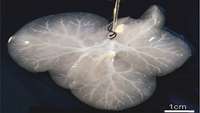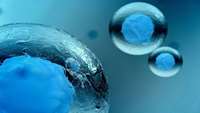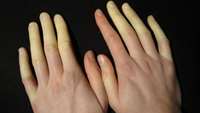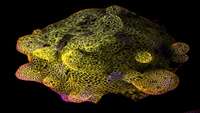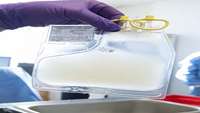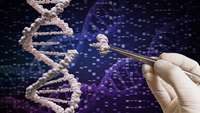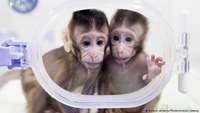Mesenchymal stromal cells for tolerance induction in organ transplantation
he primary challenge in organ transplantation continues to be the need to suppress the host immune system long-term to ensure prolonged allograft survival.
Human induced pluripotent stem cells and male infertility: an overview of current progress and perspectives
Recently, significant progress has been made in ART for the treatment of male infertility. However, current ART has failed to help infertile patients with non-obstructive azoospermia, unless donor sperm is used.
The role of adipose-derived stem cells in a self-organizing 3D model with regard to human soft tissue healing
The clinical phenomenon of inadequate soft tissue healing still remains an important issue. The occurrence of chronic wounds is correlated to the life span, which is still increasing in western countries.
Mouse decellularised liver scaffold improves human embryonic and induced pluripotent stem cells differentiation into hepatocyte-like cells.
Liver transplantation is the definitive treatment of liver failure but donor organ shortage limits its availability. Stem cells are highly expandable and have the potential to differentiate into any specialist cell. Use of patient-derived induced Pluripotent Stem Cells (hiPSCs) has the additional advantage for organ regeneration therapies by removing the need for immunosuppression.
Cellular barcoding helps scientists understand the behavior of stem cells
By tagging bone marrow cells of mice with a genetic label, or barcode, researchers were able to track and describe the family tree of individual blood cells as they form in their natural environment.
Stem cell transplant for severe scleroderma improves survival, quality of life
New clinical trial findings show that a therapeutic regimen involving transplantation of a persons own blood-forming stem cells can improve survival and quality of life for people with severe scleroderma, a life-threatening autoimmune Adisease.
STEMCELL Technologies Brings Groundbreaking Intestinal and Brain Organoid Culture Tools to the Global Research Community
STEMCELL Technologies Inc. has released two product lines for organoid research that will enable scientists to create powerful models for studying human disease in the lab.
U.S. doctors plan to treat cancer patients using CRISPR
the first human test in the U.S. involving the gene-editing tool CRISPR could begin at any time and will employ the DNA cutting technique in a bid to battle deadly cancers.
Gene Editing Needs to Be Available to Everyone
When I was growing up, the idea of re-engineering human DNA was a staple of science fiction. Now, it’s a reality. Adult gene therapy editing the genome of a person is expected to soon be a treatment option for a number of otherwise intractable diseases.
Monkeys cloned in world first, scientists reveal
Two monkeys are the first ever primates to be cloned using the technique that created Dolly the sheep.


